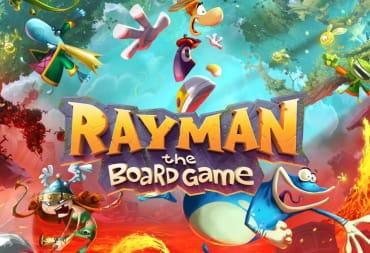It is no secret that things like loot boxes and skin packs are far from beloved by most gamers. Sure, the presence of microtransactions doesn't necessarily mean that a game is going to be utter garbage, but with the way that some people view microtransactions, you'd think that being able to buy a random assortment of fake items with real money would lead to the collapse of the entire industry. It's certainly not a healthy feature of modern games, but before anyone goes off on an angry rant about Activision and EA, perhaps it's for the best if we look at every aspect of the problem.
Of course, companies like Activision and EA should bear quite a bit of the blame for the spread of microtransactions. After all, the average Joe has no actual say over what kind of monetization scheme is going to be in Destiny, Overwatch, Witcher, and so on and so forth. There's certainly the illusion that your voice has an impact on the companies that make such decisions thanks to the echo chamber that is the Internet, but it would be rather naive to think that Bobby Kotick is going to get on the phone and tell Sledgehammer Games to tone down the microtransactions in Call of Duty: WWII just because some YouTube trailer has a million downvotes. To be fair, some unpopular decisions do get changed if the public outcry is great and widespread enough—Star Wars Battlefront 2 for example is reportedly going to have a revamped Star Card system that essentially makes it so that class progression and weapon unlocks are tied to your performance in the game rather than sheer luck or reckless spending—but for the most part, developers and publishers get to do whatever they like to their games, and consumers more or less just react to whatever it is that they produce.
This leads to the second half of the equation, the consumer. Activision, EA, Ubisoft, and so on can pack their games to the gills with virtual slot machines, but who is yanking on the slot machine's lever? If no one were to ever buy loot boxes or fake currency or whatever the next nickel and dime scheme is, then, in theory, companies would see that it is pointless to add such things to their games when they can be making money some other way. Not exactly a revolutionary new concept, even if its effectiveness in practice is disputable. Unfortunately, there's always going to be one segment of the population that will always throw excessive amounts of money at seemingly frivolous things (whales), just like how there's always going to be a group of people who will wait to buy games until they go on sale years after their initial release.
In this case though, the extreme ends of the spectrum are of little consequence since they are generally going to be a stable, predictable demographic. It is the people in the middle, the "average gamer" so to speak, that is the target of microtransactions. From a practical standpoint, it makes the most sense. Whales will be whales and drop hundreds of dollars on who knows what, and those who have an iron fist on their wallet are never going to spend money on loot boxes, so you go after the normal people who can be persuaded with a few (rather cliched) words and phrases. Buying loot boxes will fund future content, skin pack revenue is going to be used for server maintenance, there's going to be free DLC packs instead—these are the excuses that are always used whenever a game introduces a microtransaction scheme. From Activision to EA, from Destiny to Overwatch, from indie to AAA, it's always the same song and dance.

That's not to say that there isn't some truth to the idea that maybe microtransactions do fund future content, but it is a rare sight indeed for a developer or publisher to actually show you that that is the case. In other words, there is no transparency nor accountability, and that is perhaps the greatest deception of all when it comes to microtransactions. No one's asking for company secrets or an in-depth report from Blizzard or Valve's team of accountants, and there's not even a ballpark estimate for how much money microtransactions make for most games. Admittedly, it is a brilliant money making scheme, and you would be lying if you said you wouldn't want to receive millions of dollars for content that you already made, and the only person who you would have to report this money to is basically the taxman.
Maybe, just maybe, the next time a developer pulls some outrageous stunt like selling non-cosmetic items in loot boxes or suggesting that people will "throw money at the screen" for some emotes, we should take a look at ourselves before we form an angry mob and threaten to burn down this developer or that publisher with ineffective and meaningless boycotts. Instead, maybe we, as gamers, should take a long look at ourselves and ask if we didn't collectively allow this to happen because we apparently always fall for the same excuses every single time. Maybe we are the architects of our own eventual destruction because we allowed companies to normalize microtransactions to the point that other gamers defend and encourage the practice by saying that "Oh, I bought a few loot boxes because I enjoyed the game" or "Oh, I thought the seasonal event was cool" or "Oh, I want to support the developer because they're different and fun." People could be right in saying that Activision and EA are devils, but what are we if we willingly gave our souls to the devil in exchange for a few fancy skins?
Have a tip, or want to point out something we missed? Leave a Comment or e-mail us at tips@techraptor.net













